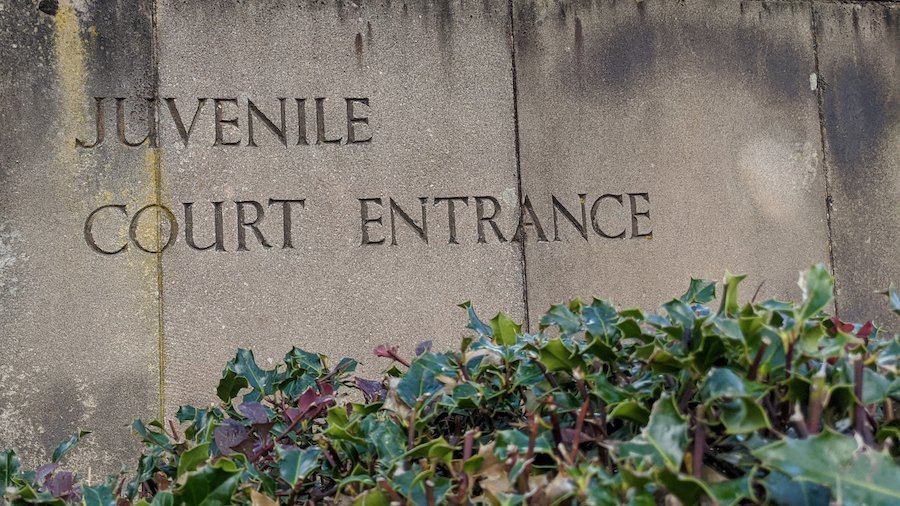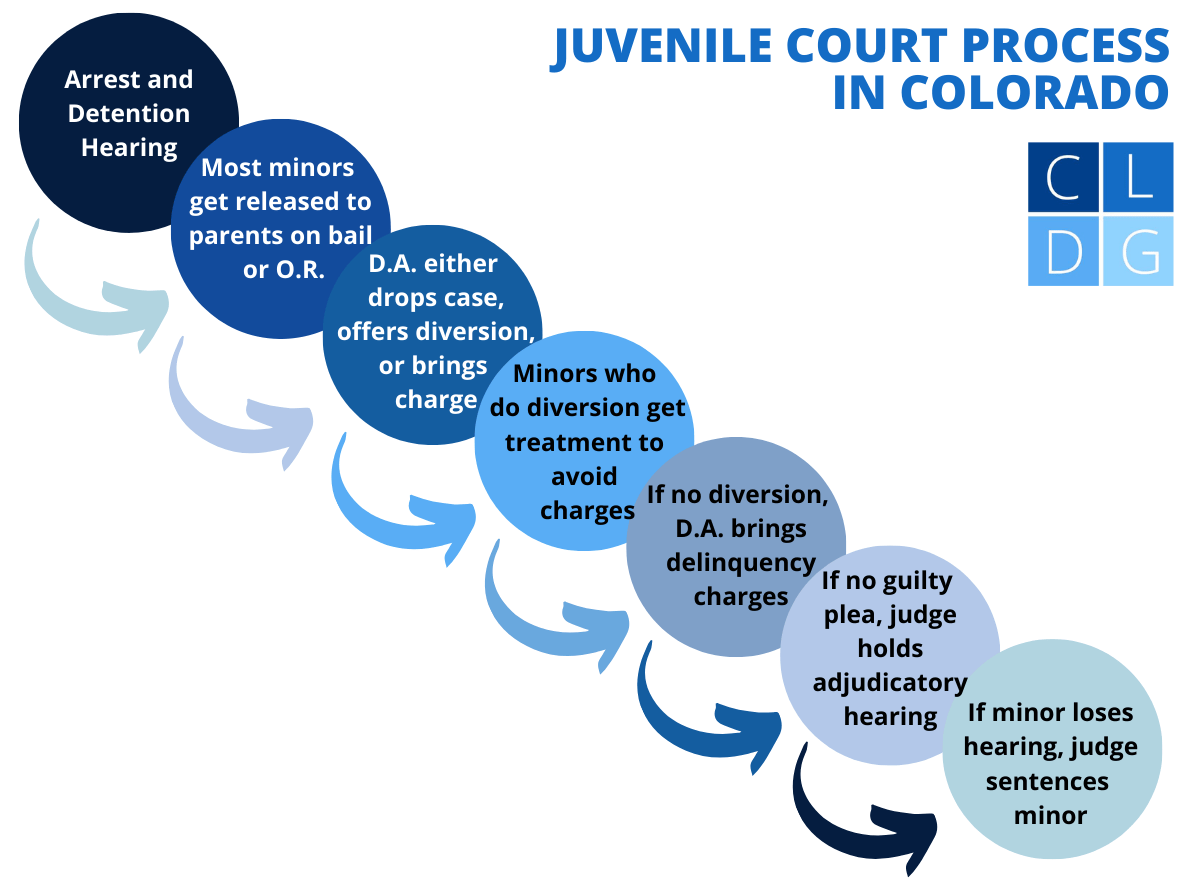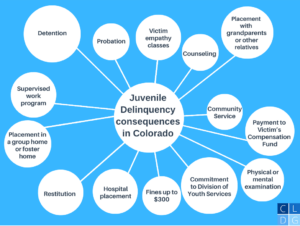Getting arrested for DUI does not mean you will be convicted. Police misconduct, defective breathalyzers and crime lab mistakes may be enough to get your charges lessened or dismissed. Visit our page on Colorado DUI Laws to learn more.
24/7 Help:
(303) 222-0330
Please note: Our firm only handles criminal and DUI cases, and only in California. We do not handle any of the following cases:
- civil matters
- CCWs or gun right restoration
- labor
- family law
- immigration
- landlord/tenant
- harassment
- restraining orders
And we do not handle any cases outside of California.
Call Us NowThe Denver Juvenile Court System – A Guide for Parents
Posted on

Location of Denver Juvenile Court
Denver Juvenile Court is located at:
Lindsey-Flanigan Courthouse
520 West Colfax Avenue., 2nd floor
Denver, CO 80204
The clerk’s office phone number is (720) 337-0570. If your child has a hearing, be sure to leave an extra half hour to find parking and to go through the metal detector.
When your child will see a judge after being arrested
If your child is arrested in Denver County and not released, a detention hearing should be held at Denver Juvenile Court within 48 hours. The judge will advise your child of their rights and determine whether they can be released and – if so – under what conditions.
Some minors are put on a pretrial release program (Detention Reduction Program) where they are released from detention but heavily monitored.
A public defender will represent your child during the detention hearing unless you hire a private defense attorney first. Remember that
- your child’s attorney is not your attorney, and
- that the attorney owes confidentiality to your child.
In some cases, children suspected of crimes are not arrested but instead given a summons. The child is then expected to appear at the court date listed on the summons (called a First Appearance or Advisement Hearing).1
 Other court hearings your child will have
Other court hearings your child will have
Denver juvenile cases consist of the following court hearings:
- Return filing hearing: This is when the district attorney files a delinquency petition or informs the judge that charges are being declined (thereby ending the case). The judge may also issue a mandatory protection order requiring your child to stay away from any witnesses or victims in the case.
- Status hearings: These are periodic hearings where your child’s attorney and the district attorney update the judge on the status of the case, such as whether there has been a plea agreement.
- Preliminary hearing: In more serious cases, a preliminary hearing is held for the judge to determine whether probable cause exists to continue prosecuting your child. It is like a mini-trial where witnesses can be called and evidence can be presented.
- Pretrial hearings: This is an opportunity for the judge to decide on various legal issues (such as admissibility of evidence) if it looks like the case will be proceeding to trial.
- Adjudicatory hearing: This is the trial. Your child can have a jury in more serious cases. Otherwise, the judge will decide the verdict. The prosecutor has the burden to prove guilt beyond a reasonable doubt.
- Sentencing hearing: If your child is adjudged delinquent or enters a plea, the judge will impose a sentence. You may speak during this hearing to ask the judge for leniency. The judge will also consider the recommendations of the Probation Department, which prepares a pre-sentence investigation (PSI) report for each child facing sentencing.
If you do not agree with the judge’s decisions, talk to your child’s attorney about filing an appeal or a motion for reconsideration.2
What the judge can sentence your child to
Depending on the case, a Denver Juvenile Court judge may sentence minors adjudicated as delinquent to the following:

Note that detention is served at the Gilliam Youth Services Center (“The Gil”), located at 2844 Downing Street, Denver, Colorado 80205.
If the judge grants your child deferred adjudication, the entire case will be dismissed if your child completes all the terms of supervision (which may include any of the above sentencing terms). If your child violates the terms of supervision, they will be adjudged delinquent and sentenced accordingly.3
Your responsibilities
As your child’s parent and guardian, you are expected by Denver Juvenile Court to appear in court and help your child comply with the terms of probation. During court hearings, your child’s attorney sits in between you and your child.
If your child agrees to a plea, you must sign the paperwork. If your child is assigned to placement outside of your home, the court can also require you to pay for the costs (if you have the ability to).
The judge may order you to attend parental responsibility training. If you are the victim in your child’s case, the court will appoint a “guardian ad litem” to advocate for your child’s best interests in court.

Contact our Denver juvenile defense lawyers for legal advice.
Hiring an attorney for your child
Having a juvenile delinquency record can cause your child to be rejected from schools, jobs, and scholarship programs. As an experienced Denver juvenile law attorney, I will fight to get the charges dismissed to safeguard your child’s long-term prospects.
Additional reading
For more information, refer to our related articles:
- Colorado juvenile justice system – Overview of how defendants younger than 18 are prosecuted for unlawful behavior.
- Trying juveniles in a criminal case – When children can be tried as adults.
- Juvenile arraignments – Discussion of the beginning of the juvenile court system.
- Sealing juvenile criminal records – Instructions and waiting periods.
Also refer to the Colorado government’s Denver Juvenile Court Handbook for in-depth explanations for parents and young adults.
Legal References
About the Author

Michael Becker
Michael Becker has over a quarter-century's worth of experience as an attorney and more than 100 trials under his belt. He is a sought-after legal commentator and is licensed to practice law in Colorado, Nevada, California, and Florida.
